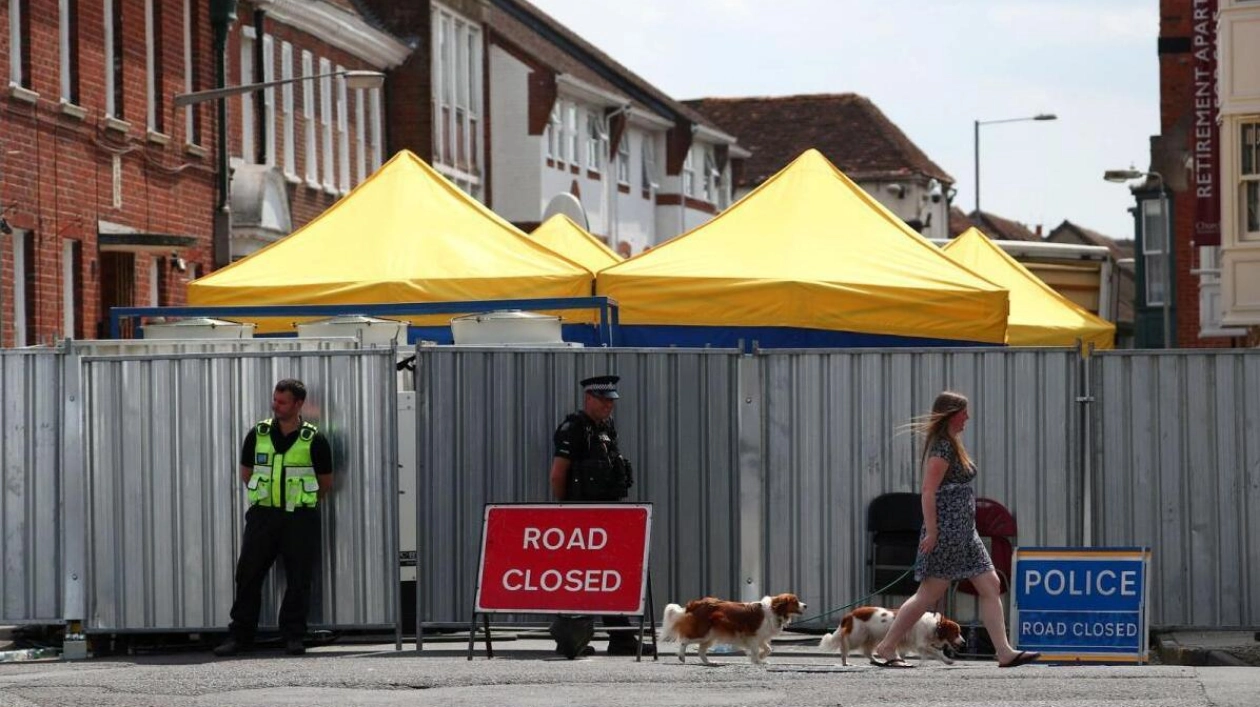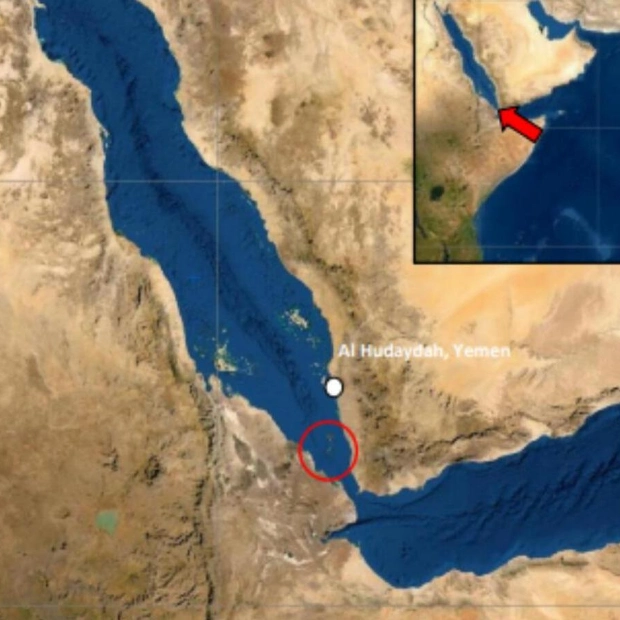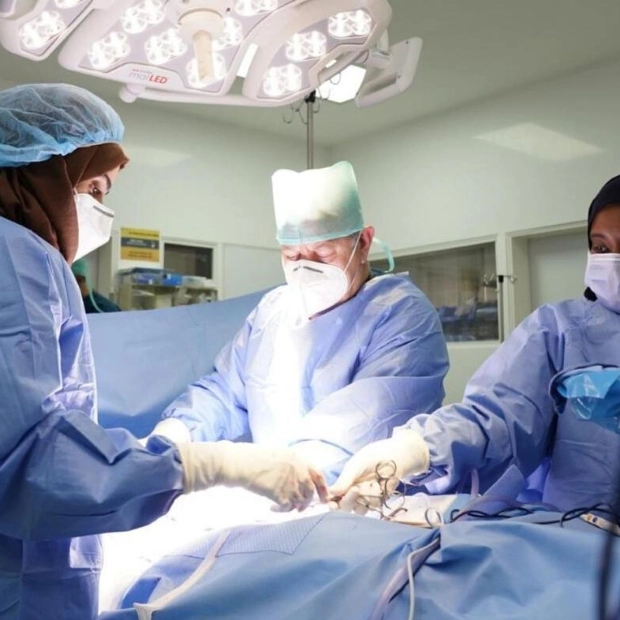A woman strolls with her dogs past police officers stationed outside barriers blocking the street where Dawn Sturgess resided before succumbing to exposure to the Novichok nerve agent in Salisbury, Britain, on July 19, 2018. – Reuters file
A public inquiry into the death of a woman, whom Britain asserts was inadvertently killed by the Novichok nerve agent following the attempted assassination of former Russian double agent Sergei Skripal six years ago, is set to commence on Monday. Dawn Sturgess passed away from Novichok exposure in July 2018 after her partner discovered a counterfeit perfume bottle, believed to have been used by Russian intelligence operatives to transport the poison into the country. Skripal, who had sold Russian secrets to Britain, and his daughter Yulia were found unconscious on a public bench in the southern English city of Salisbury four months prior. Both they, along with a police officer who visited Skripal's residence, were gravely ill from the military-grade nerve agent but eventually recovered.
On Monday, the inquiry into Sturgess's death will finally commence, with initial hearings held in Salisbury. Its objective is to furnish her family with insights into the circumstances surrounding her death, and it will consider some confidential evidence in private from the government and security services. Although British police have charged three Russians, whom they identify as GRU military intelligence officers, in absentia for the attack on Skripal and his daughter, no formal charges have been filed against them regarding Sturgess's death, 44. The three men and Moscow have vehemently denied any involvement.
Last month, the inquiry chair, former Supreme Court judge Anthony Hughes, decreed that the Skripals would not testify, citing an 'overwhelming risk' of physical harm if their identities and current locations were disclosed. Two of the Russians accused by Britain of orchestrating the poisoning later appeared on Russian TV to refute the allegations, claiming they were innocent tourists visiting the city's cathedral. The incident sparked the largest East-West diplomatic expulsions since the Cold War, and relations between London and Moscow have deteriorated further following Russia's invasion of Ukraine.
The Russian embassy in London recently stated that the British foreign ministry's 'references to the alleged use of the mythical Novichok are quite preposterous.' 'Following the Salisbury provocation in 2018, it was the UK side that refused to adhere to established procedures and cooperate with Russia to unveil the truth,' it declared on X.






